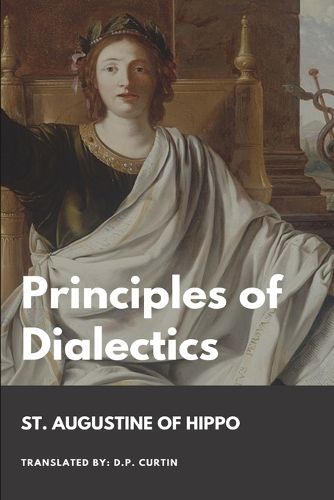Readings Newsletter
Become a Readings Member to make your shopping experience even easier.
Sign in or sign up for free!
You’re not far away from qualifying for FREE standard shipping within Australia
You’ve qualified for FREE standard shipping within Australia
The cart is loading…






This title is printed to order. This book may have been self-published. If so, we cannot guarantee the quality of the content. In the main most books will have gone through the editing process however some may not. We therefore suggest that you be aware of this before ordering this book. If in doubt check either the author or publisher’s details as we are unable to accept any returns unless they are faulty. Please contact us if you have any questions.
This work attributed to St. Augustine outlines the foundational concepts of dialectics, focusing on the classification of words and sentences into simple and compound categories. Simple words convey a single meaning, while compound words represent multiple connected ideas. The text further differentiates between simple and compound sentences, emphasizing how they can affirm or deny propositions. It also categorizes compound sentences based on whether they complete a thought or require further context. The discussion culminates in the treatment of matters, words, sayables, and expressions within the framework of logic.
$9.00 standard shipping within Australia
FREE standard shipping within Australia for orders over $100.00
Express & International shipping calculated at checkout
This title is printed to order. This book may have been self-published. If so, we cannot guarantee the quality of the content. In the main most books will have gone through the editing process however some may not. We therefore suggest that you be aware of this before ordering this book. If in doubt check either the author or publisher’s details as we are unable to accept any returns unless they are faulty. Please contact us if you have any questions.
This work attributed to St. Augustine outlines the foundational concepts of dialectics, focusing on the classification of words and sentences into simple and compound categories. Simple words convey a single meaning, while compound words represent multiple connected ideas. The text further differentiates between simple and compound sentences, emphasizing how they can affirm or deny propositions. It also categorizes compound sentences based on whether they complete a thought or require further context. The discussion culminates in the treatment of matters, words, sayables, and expressions within the framework of logic.